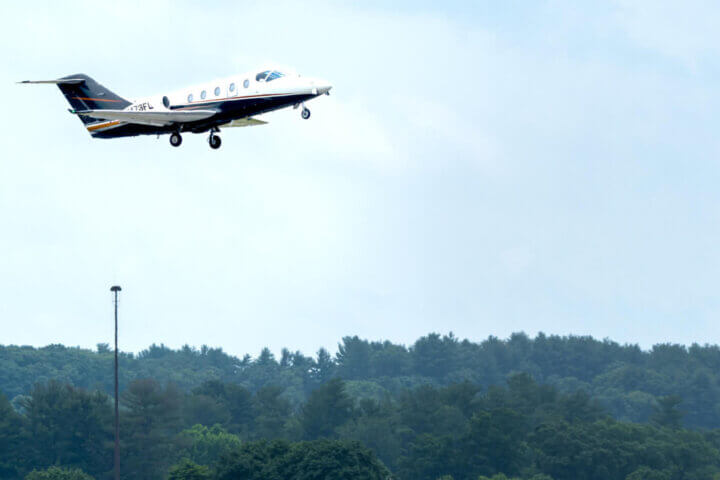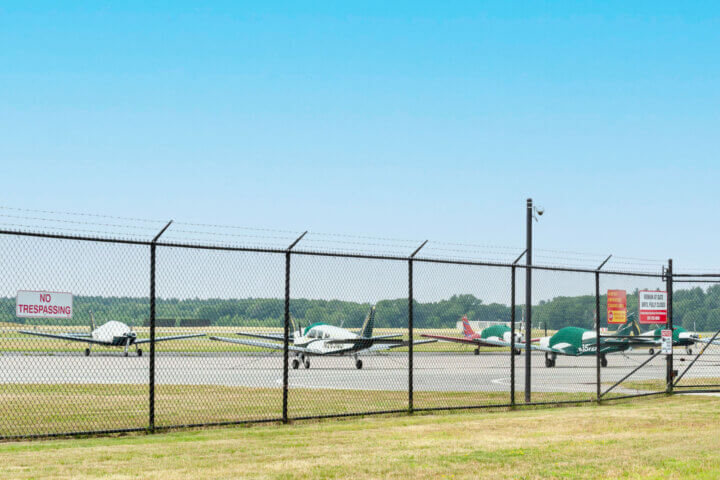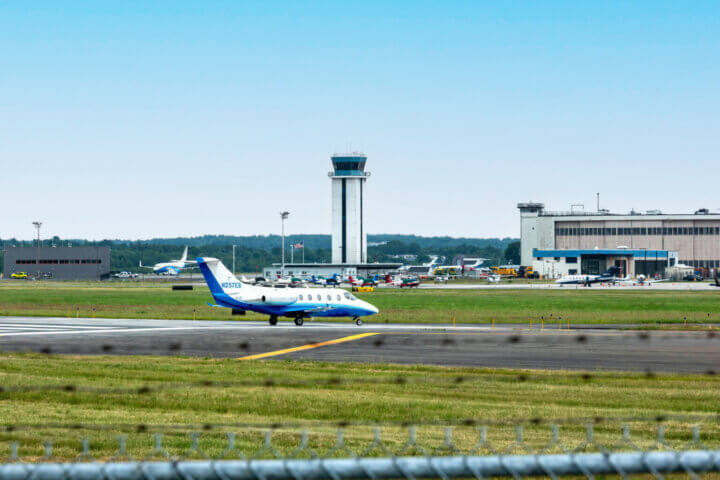By Erin Tiernan — Correspondent
A Massport-backed project to expand hanger space for private jets at Hanscom Airport is moving into the next phase of a state Environmental Impact Review that some opponents say is just a toothless box-checking exercise.
On June 21, the Massachusetts Environmental Policy Act office will certify the developers’ environmental impact analysis, determine it’s inadequate, or require a supplemental review with more detail on areas of concern and planned mitigation measures. A lengthy public comment period saw more than 154 responses to the analysis from residents, agencies, and non-profits.
But MEPA has no authority to halt, approve, or even require changes to the project. Ultimately, only Massport’s CEO has the power to stop it.
“In general, the MEPA process is a weak reed,” said state Sen. Michael Barrett (D-Lexington).
“It was written decades ago. By design, it’s limited to identifying issues. It doesn’t deliver solutions. In the case of the hangars, deliverance can come only from Massport leadership. Let’s hope they read the Impact Report and just say no.”
How it works
According to state statute, MEPA review “is an informal administrative process” intended to inform “interested” agencies and people about agency-backed projects. A proponent gets a certificate of compliance by analyzing the project, its alternatives, and potential environmental impacts.
“The project developer must go through a number of processes, and fulfill any requirements and/or make any necessary adjustments, or it cannot continue,” said Massport spokeswoman Jennifer Mehigan. “For this project there is the MEPA process, a process with the FAA, as well as other town development processes.”
The federal environmental review process is similar to the MEPA review. Bedford, where the construction is occurring, will eventually issue building permits. Construction is anticipated to start in late 2025, according to a Massport timeline.
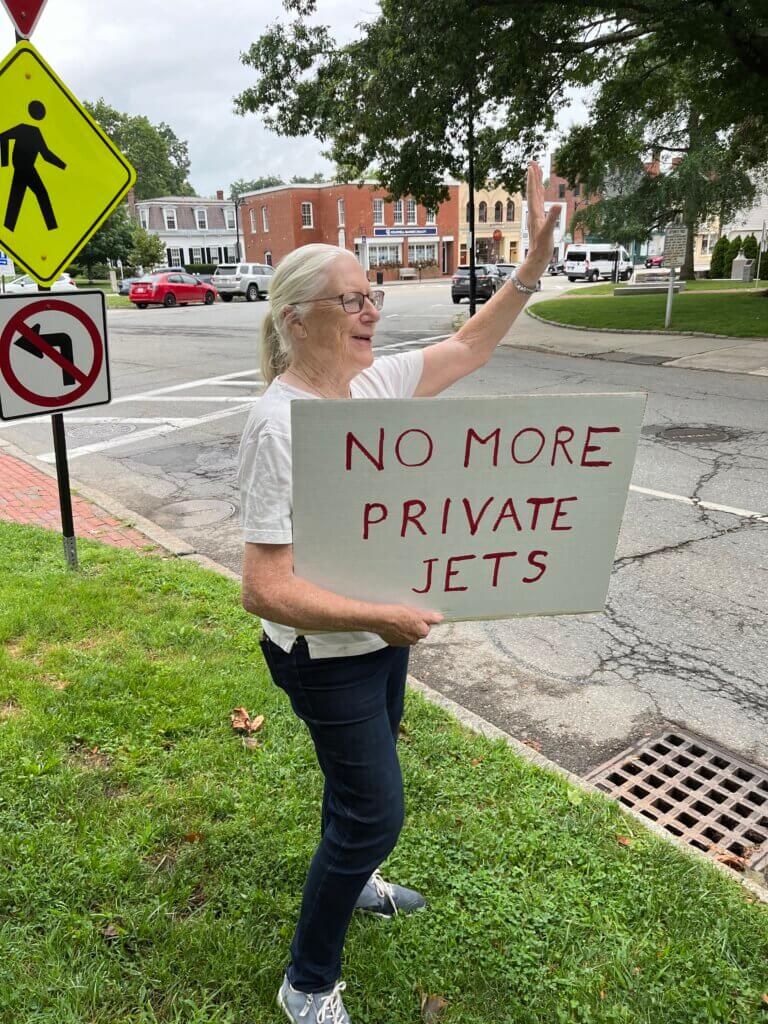
Photo by Betsy Levinson
Who’s behind the project?
Massport hired developers North Airfield Ventures and Runway Realty Ventures following a 2021 request for proposal. The companies, formed in response to the RFP, are backed by Jeffrey Leerink, who was an executive at Silicon Valley Bank at the time of its collapse, and Norwood Cadillac dealership head Michael Argiros.
The 522,000-square-foot planned expansion would provide new parking for private jets along with 17 new hangars, a renovation of an old Navy hangar, and so-called “aviation support space,” which developers have said is for conference rooms and similar needs.
Opponents have pushed back on the developers’ Draft Environmental Review claims that the project would have a net-zero climate impact. Proponents say an anticipated drop in ferry flights — when empty jets take off and return due to a lack of on-site parking — would offset any new air traffic.
There’s no federally recognized definition of ferry flights, so studies vary widely on the numbers.
Developers claim ferry flights account for as much as seven percent of all takeoffs and touchdowns at Hanscom — or roughly 3,200 annually. One opposition-funded report estimates only 132 ferry flights would be cut and as many as 6,000 regular trips added.
Hopes of a Healey intervention
Town officials and others concerned about the potential for more emissions-spewing private jet travel want Gov. Maura Healey to pressure Massport leadership to scrap the project. Healey, who pinned her campaign on a climate-focused agenda, has been largely absent from public discussion so far.
A Healey spokeswoman recently told the Bridge the governor “will review the environmental impacts outlined in the MEPA process.”
More than 15,500 people have now signed a petition circulated by the opposition group Stop Private Jet Expansion at Hanscom or Anywhere. It urges Healey to step in, saying, “Only the governor has any power over Massport.”
Chris Eliot, chair of the Hanscom Field Advisory Task Force, which represents the four towns that neighbor the airport, said Massport’s mission is business-driven and at odds with the best interest of communities.
“I think it’s pretty clear that the communities we represent don’t support expansion of Hanscom Field,” he said. “The community surrounding Hanscom and this commission might want to comment on these policies.”
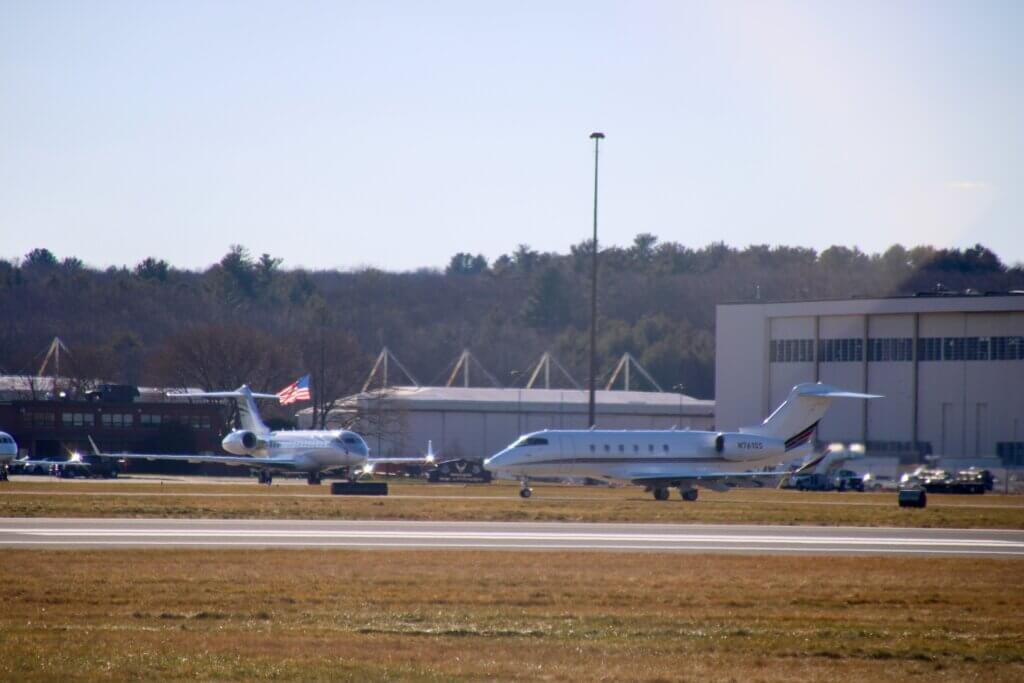
Massport makeover
Massport is the state’s largest quasi-public agency, is self-sustaining and is governed by a seven-member board, which insulates it from political control.
It oversees Logan Airport, Hanscom Field, Worcester Regional Airport, the port of Boston’s container terminal and cruises that come in and out of the state. The agency employs about 1,300 people and generates more than $20 billion a year.
Massport is in the process of installing a new CEO. The board selected New York subway system leader Richard Davey and offered him a $420,000 salary.
Davey has a history in Massachusetts. He led the MBTA under Gov. Deval Patrick and later ran Boston 2024, a non-profit that unsuccessfully tried to bring the 2024 Summer Olympics to the city.



